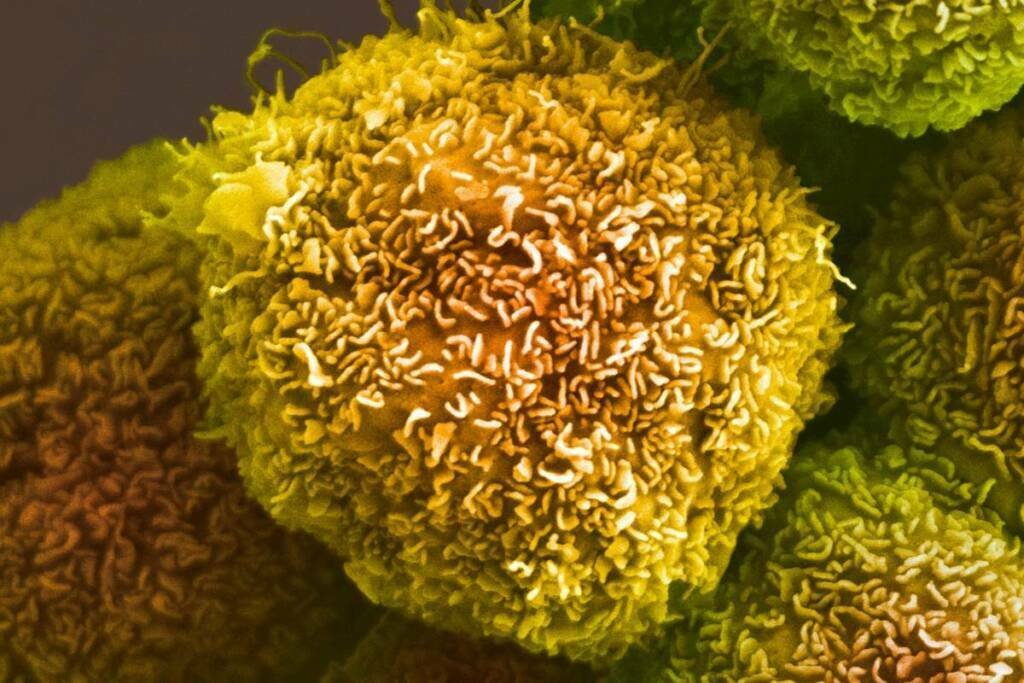Source – Merus
On July 5, The FDA has granted breakthrough therapy designation to zenocutuzumab (MCLA-128) as a treatment for advanced pancreatic cancer that is unresectable or has metastasized, specifically in patients with NRG1 fusion-positive tumors who have experienced disease progression despite previous systemic therapy or for whom there are no satisfactory alternative treatment options available. On June 30, 2023, a Fast Track Designation was granted to Zeno for treating patients with metastatic solid tumors that have NRG1 gene fusions (NRG1+ cancer) and have shown progression on standard treatment. This designation follows the announcement made in January 2021 about the Fast Track Designation for Zeno in the treatment of patients with NRG1+ pancreatic cancer who have previously received systemic therapy and have limited alternative treatment options. Furthermore, in July 2020, Zeno received Orphan Drug Designation specifically for the treatment of patients with pancreatic cancer.
This designation is supported by findings from an early access program (EAP) that evaluated the safety and effectiveness of zenocutuzumab (NCT04100694), as well as the Phase I/II eNRGy trial (NCT02912949).
Data from the eNRGy trial showed that zenocutuzumab achieved an objective response rate (ORR) of 34% (95% CI, 24%-46%) according to investigator assessment and RECIST v1.1 criteria, with a median follow-up of 6.3 months among 79 patients who had previously received treatment for advanced NRG1-positive cancers. The median time to response was 1.8 months, and the median duration of response (DOR) was 9.1 months (95% CI, 7.4-not reached). As of June 1, 2023, over 175 patients with NRG1-positive cancer have been treated with zenocutuzumab as a monotherapy.
“We believe the compelling clinical data for zenocutuzumab in NRG1-positive cancer, and breakthrough therapy designation, provide the opportunity to further engage with the FDA to expedite the review of a potential biologics license application submission.”
– Bill Lundberg, MD, president and chief executive officer of Merus NV, in a press release.
Zenocutuzumab is a type of antibody-dependent cell-mediated cytotoxicity-enhanced Biclonics. It works by binding to HER2 and effectively blocking the interaction of HER3 with its ligand NRG1 or NRG1-fusion proteins. In July 2020, zenocutuzumab received orphan drug designation from the FDA for its use in pancreatic cancer patients, and in January 2021, it was granted fast track status for the treatment of patients with NRG1-positive metastatic solid tumors that have progressed on standard treatment.
Preclinical studies have shown that zenocutuzumab can effectively inhibit cell growth and molecular signaling in NRG1-positive cancers at concentrations of up to 0.01 µM, indicating its potential as an effective treatment option.
The Phase I/II trial of zenocutuzumab was a global, open-label, multicenter study that enrolled patients aged 18 years or older with locally advanced, unresectable, or metastatic solid tumors harboring NRG1 fusions. Patients were required to have previously received standard therapy or be ineligible for it, and they needed to have an ECOG performance status of 0 to 2. The treatment regimen consisted of intravenous administration of zenocutuzumab at a dose of 750 mg every 2 weeks until disease progression, with tumor assessments conducted every 8 weeks. After completing the treatment phase, patients entered a follow-up period lasting up to 2 years.
The primary goal of the trial was to assess the ORR as determined by the investigator, and secondary endpoints included DOR, ORR as assessed by central review, safety, pharmacokinetics, and the presence of antidrug antibodies.
As of April 12, 2022, a total of 83 patients were included in the primary analysis of a study. These patients had a median age of 59 years (ranging from 22 to 84) and over half of them were female (59%), White (57%), and had metastatic (99%) and measurable (95%) disease. On average, these patients had received two prior lines of therapy (ranging from 0 to 8), with 11% of them previously treated with afatinib (Gilotrif). At the time of data cutoff, 24% of patients were still receiving treatment, and the main reason for treatment discontinuation was disease progression (73%). Patients were exposed to zenocutuzumab for a median duration of 6.3 months (ranging from 1 to 21).
The enrolled patients had various primary tumors, including non-small cell lung cancer (NSCLC; 57%), pancreatic ductal adenocarcinoma (PDAC; 23%), breast cancer (8%), cholangiocarcinoma (4%), colorectal cancer (4%), or other types (5%). Among the patients, 77% had their NRG1 fusion detected through RNA sequencing, 22% through DNA sequencing, and 1% through nanostring technology. The study identified 26 different fusion partners, with the most common being CD74 (31%), SLC3A2 (16%), and ATP1B1 (13%).
The data revealed that zenocutuzumab demonstrated an objective response rate (ORR) of 42% (95% CI, 20%-67%) in patients with PDAC and an ORR of 35% (95% CI, 21%-50%) in patients with NSCLC, as assessed by the investigators. The 6-month duration of response (DOR) rate among all patients was 76%, and the 12-month DOR rate was 27%. Seventy percent of the 79 patients evaluated experienced tumor reduction with treatment compared to baseline.
Regarding safety, among patients who received zenocutuzumab at the recommended phase 2 dose across indications in the phase 1/2 trial, 92% experienced at least one adverse event (AE) of any grade, 36% had grade 3 or 4 AEs, and 3% had a grade 5 AE. Sixty-one percent of patients experienced treatment-related AEs (TRAEs) of any grade, 5% had grade 3 or 4 TRAEs, and 0.5% experienced a grade 5 TRAE. The most common TRAEs of any grade observed with zenocutuzumab included diarrhea (21%), asthenia/fatigue (12%), infusion-related reactions (15%), and nausea (10%). Furthermore, less than 1% of patients discontinued treatment with zenocutuzumab due to AEs.
Merus, the company developing zenocutuzumab, is expected to provide an update on the clinical findings of this agent in NRG1-positive cancers at an upcoming medical conference. Additionally, Merus is currently evaluating the combination of zenocutuzumab and afatinib (Gilotrif) in patients with NRG1-positive NSCLC.





























